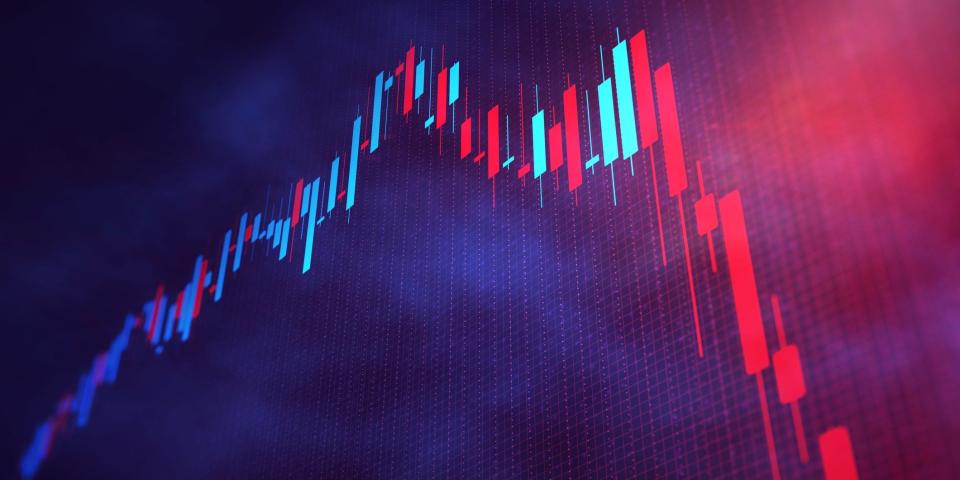Stocks are poised for a “reset,” according to Technical Traders’ Chris Vermeulen.
Defensive areas of the market are rallying, which is typical in a late-stage bull market.
Bull markets are inevitably followed by bear markets and a financial reset, Vermeuelen warned.
Stocks have been in the midst of a long bull market, but there are signs that it’s finally going to run out of steam and will inevitably be followed by a bear market and a difficult “reset,” according to Chris Vermeulen,CIO of Technical Traders.
In an interview with Bloomberg, the investment chief pointed to the recent run-up in defensive assets, like precious metals, energy stocks, and industrial stocks. Those areas all typically do well in the late stage of a bull market, which is inevitably followed by a bear market or a “financial reset,” Vermeulen said.
Investors are likely heading into another bear market, similar to the ones that followed the dot-com bubble and the 2008 financial crisis, he predicted. That could end up sparking painful stock losses for investors, with people seeing their wealth decline as much as 30%-50% over the next year, he warned.
“I think we’re coming into a major market top, more or less a financial reset,” Vermeulen said Tuesday. “It’s short-term, temporarily painful. But we need markets to reset. We need regular pullbacks and corrections in order for the market to keep going up.”
That reset could also come with a recession, Vermeulen said, with industrial stocks in particular signaling a slowdown for the economy. While the sector has done well in recent months, buyers of industrial goods typically upgrade their equipment at the end of an economic growth cycle, due to “huge delays” between slowing business and orders for new machinery.
“They don’t realize we’re coming to the end of a growth cycle, and the music is about to stop,” Vermeulen said of US firms. “Industrial stocks have just continued to muscle their way higher. They’re hitting all-time highs, and that is a sign that we’re going to see these companies eventually start to slow down.”
Investors remain concerned over a potential recession, especially as inflation has remained stubbornly elevated and the Fed looks poised to keep interest rates higher for longer. The economy has a 58% chance of tipping into recession by March of next year, per the latest estimate from the New York Fed.
Read the original article on Business Insider
Credit: Source link




